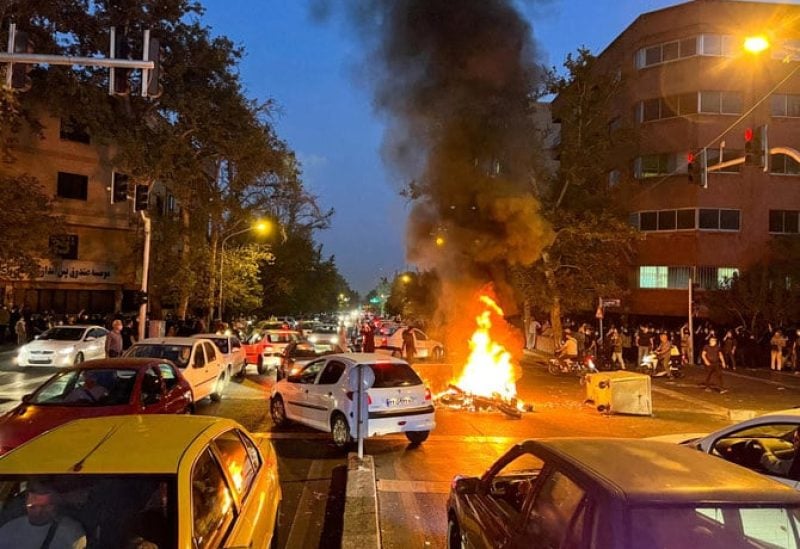
Nationwide unrest erupted in mid-September after the death in custody of 22-year-old Kurdish Iranian woman Mahsa Amini. (WANA via Reuters)
Night demonstrations flared up in several Iranian cities, hours after the execution of two protesters, and amid international condemnation of Iranian authorities.
Iran’s judiciary announced on Sunday jail terms of up to 10 years for people who called for strikes as part of a month-long protest movement. Four Iranians have been convicted against the background of inciting a strike by truck drivers.
Media outlets also reported on authorities convicting Faezeh Hashemi Rafsanjani, a former lawmaker, and the daughter of former Iranian President Ali Akbar Hashemi Rafsanjani.
On Sunday evening, anti-regime demonstrations resurged in the Sattar Khan neighborhood at the heart of the capital, Tehran.
The day before, Iranian protesters took to the streets in 20 of Tehran’s neighborhoods against authorities executing Mehdi Karami and Sayed Mohammad Hosseini.
They chanted anti-establishment slogans like “Death to Khamenei,” “We do not want the government that kills children,” “Death to the Basij,” and “Death to the Revolutionary Guards.”
Protesters also warned that “poverty, corruption and hiked prices” were driving them harder towards overthrowing the regime.
A group of protesters took to the streets in the cities of Karaj and Arak, according to videos shared on social media.
A group of women demonstrated in the city of Najafabad in Isfahan province on Sunday. They chanted slogans condemning the regime, according to a video clip posted on Twitter.
The Human Rights Activists News Agency (HRANA) published a video showing strikes in the market of the Kurdish city of Saqqez.
Karami and Hosseini were hanged to death after hasty trials on charges that they participated in the killing of a member of the Basij paramilitary group in November.
These executions drew widespread international condemnation and brought up the number of executions in connection to the protests to four.
A previous execution of Iranians in December sparked domestic and international outrage and the imposition of new Western sanctions on Iran.